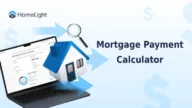Will Your 2026 Credit Score Get You The Home Loan You Need?
- Published on
- 11 min read
-
Melissa Holtje, Contributing AuthorCloseMelissa Holtje Contributing Author
Melissa enjoys using her experience as a house flipper, investment buyer, and waterfront home owner to help buyers and sellers thrive in the housing market. When not scouting real estate, you’ll most likely find her at the beach.
-
Joseph Gordon, EditorCloseJoseph Gordon Editor
Joseph Gordon is an Editor with HomeLight. He has several years of experience reporting on the commercial real estate and insurance industries.
For most people, mortgages go hand in hand with buying a home. In 2025, about 92% of first-time buyers financed their purchases, and 70% of repeat buyers did the same. To take it one logical step further, credit scores go hand in hand with mortgages, so if you’re considering getting a place you can call your own, you may be wondering what’s the ideal credit score to buy a house.
We researched top national credit score indicators to answer two important questions for homebuyers: how are credit scores determined, and what minimum credit score is needed to get a home loan in 2026 when so much is up in the air?
What are the minimum credit scores needed to get a mortgage loan?
Your credit score is a number that shows lenders how responsible you are with paying bills and managing debt. It plays a big role in getting a mortgage, as lenders use it to judge how likely you are to repay a loan. Different types of mortgages have different minimum score requirements, so knowing your score can help you plan and boost your chances of approval.
A higher credit score typically gives you the most options and the best interest rates. But even if you don’t have great credit, you still have options in the home loan market. Here are the minimum credit scores to secure a mortgage loan:
|
Type of Loan |
Minimum Credit Score |
|
FHA |
580 |
|
VA |
620 |
|
USDA |
640 |
| Conventional |
620 |
FHA loans
FHA loans are backed by the government agency, Federal Housing Administration. Although these types of loans are issued by a lender (bank or credit union), the lender is willing to take on riskier buyers than they would otherwise because the federal government is helping insure that loan.
FHA loans generally require a score of 580 to obtain a loan with a 3.5% down payment. However, if your score is lower than 580, you may still qualify for a loan if you can come up with a 10% down payment.
VA loans
A VA loan is a mortgage option for veterans, partially guaranteed by the Department of Veterans Affairs. While it doesn’t require a minimum credit score, a down payment, or private mortgage insurance (PMI) to qualify, the loan itself is issued by private lenders, not the VA. In practice, most lenders prefer applicants to have a credit score of 620 or higher.
USDA loans
USDA loans, guaranteed by the United States Department of Agriculture, are available for homebuyers looking to purchase property in rural areas. This financing option does not require a certain credit score to qualify, but most lenders who write USDA loans look for a credit score of 640 or higher.
However, if your score is lower (around 580 or higher), obtaining a USDA loan is still possible, as some lenders will look at other financial and income variables.
Conventional loans
Conventional mortgage loans are offered to homebuyers through lenders, banks, or credit unions. They usually require a minimum credit score of 620 to 640, depending on the type and size of the loan.
Other options
If you’re establishing an acceptable credit score, some additional resources may help you obtain a home mortgage. Several assistance packages are available for first-time homebuyers, including discounts for first responders, help for renovations, and closing cost assistance.
Also, the Department of Housing and Urban Development (HUD) has a catalog of homebuyer assistance options, so be sure to check out which programs you qualify for. Be persistent, and always ask what other avenues are available.
>>Learn more: Want to see what you can realistically afford when buying a home? Our home affordability calculator makes it easy to estimate your budget based on your income, debts, and expenses. Input your details and get a clearer picture of your path to homeownership.
Credit score ranges and what they mean
Understanding your credit score can help you anticipate the types of mortgage terms you might receive. Here’s a general breakdown:
- Very poor (300–579): High risk to lenders. Likely to face difficulty getting approved and, if approved, may have very high interest rates and larger down payment requirements.
- Fair (580–669): Limited options with higher rates. May require larger down payments and PMI.
- Good (670–739): Moderate credit. You may qualify for standard loan products, though rates might still be slightly higher than prime borrowers.
- Very good (740–799): Strong credit. Eligible for competitive rates, lower down payments, and reduced PMI costs.
- Exceptional (800–850): Top-tier credit. Access to the best rates and most favorable loan terms, often with minimal down payments and low or no PMI.
How are credit scores determined?
Credit scores are calculated based on how you’ve managed your debts and payments over time. They pull information from your credit history, like how you’ve handled loans and credit cards. In short, your score gives lenders an idea of how likely you are to pay back what you borrow.
There is more than one type of credit score, and the credit score lenders look at will probably be slightly different than the score you can receive on your own. That said, here’s a general breakdown of the calculations behind different major types of credit scoring.
FICO
FICO scores range from 300 to 850. A FICO score measures several aspects of your financial health and weighs them according to the following percentages to determine your total score.
- Payment history (35%): Do you pay bills on time? Have you ever declared bankruptcy or experienced foreclosure?
- Amounts owed (30%): How much debt do you have? How much of your available credit are you using?
- Length of credit history (15%): When did you open your first and most recent accounts? How long has it been since you used various accounts?
- Credit mix (10%): What types of debt do you have — student loans, car loans, credit cards, retail credit, health payments?
- New credit (10%): Have you opened or attempted to open many new accounts recently?
VantageScore
Similarly, the VantageScore ranges from 300 to 850, but this score weighs the elements of financial health a little differently.
- Payment history (41%): This reflects whether you’ve paid bills on time and how recently you’ve had late or missed payments. Of those with “prime” VantageScores, between 661 and 780, 90% pay all their debts on time.
- Depth of credit (20%): This measures the length of your credit history, the types of accounts you have (installment vs. revolving), and how long you’ve had them.
- Credit utilization (20%): This looks at how much of your available revolving credit you are using relative to your limits.
- Recent credit (11%): This considers how many new accounts you’ve opened, how recent your inquiries are, and how those might indicate greater risk.
- Balances (6%): This examines the total balances on all credit accounts (current and delinquent), beyond just your utilization ratio.
- Available credit (2%): This reflects how much credit you have available on revolving accounts, suggesting how much buffer you have for managing credit.
Whatever the particulars of your lender may be, there are three main areas that lenders ultimately consider: on-time payments, income-to-debt ratios, and low credit balances.
Beyond approval: how your credit score affects your mortgage terms
Your credit score doesn’t just determine whether you get approved for a mortgage. It plays a major role in shaping the terms of your loan. Here’s how it can affect key aspects of your mortgage:
- Interest rates: Higher credit scores typically qualify for lower interest rates, which can save you thousands over the life of the loan. Conversely, lower scores usually come with higher rates.
- Down payment requirements: Borrowers with lower scores may be asked to make larger down payments to offset the lender’s risk. Those with excellent credit can often secure loans with smaller down payments.
- PMI: If your down payment is less than 20%, lenders require PMI. Higher credit scores may reduce PMI costs or make it easier to avoid it altogether.
- Loan terms and flexibility: Strong credit can open doors to better loan products, such as adjustable-rate mortgages with favorable terms or jumbo loans with lower fees.
In short, a higher credit score doesn’t just help you get a mortgage. It helps you get better mortgage terms that save you money and provide more flexibility.
What impact will credit scores have in 2026?
The national average credit score has slowly declined over the past few years, falling from 718 in 2023 to 715 in 2025, according to FICO. Rising debt levels and growing delinquency rates suggest that many Americans are struggling financially, even beyond what headline economic numbers show. High interest rates and increasing living costs have made borrowing more expensive, pushing some households deeper into debt.
Credit scoring systems are also evolving to better reflect consumers’ financial behaviors. FICO’s expanded scoring now includes Buy Now, Pay Later (BNPL) accounts, meaning that late or missed payments on these loans can lower your credit score, while making timely payments could actually help improve it.
Meanwhile, VantageScore 4.0 incorporates alternative data like rent, utility, and telecom payments and doesn’t require a lengthy credit history or recent credit activity. These updates give lenders a fuller picture of a borrower’s reliability and open the door for more people to be evaluated fairly.
For homebuyers, these trends carry important implications. While the national average credit score has slightly declined in recent years, the changes in scoring systems mean that lower scores don’t automatically disqualify someone from getting a mortgage.
Expanded FICO scoring now factors in BNPL payments, and VantageScore 4.0 includes rent, utility, and telecom payments, giving a fuller picture of financial responsibility. Together, these developments allow first-time buyers and those with limited credit history to qualify for loans or access better terms, as long as they stay on top of all payments.
A higher credit score demonstrates less risk for the lender, which means they will offer a lower interest rate on the mortgage loan. On the flip side, lenders will demand higher interest rates from homebuyers with lower credit to help minimize their risk.
FICO has a loan savings calculator that illustrates how improving your credit can save thousands in interest over the life of a mortgage loan.
What’s the difference between a credit score and a credit report?
A credit score is a three-digit number that shows how reliable you are at paying back debt. A credit report is the full history behind that score, listing things like loans, credit cards, payment history, and any missed payments.
Basically, the report is all the details, and the score is a quick summary. Lenders look at both when deciding whether to approve you for credit. By law, you’re entitled to a free annual credit report from each credit reporting company.
Most people obtain credit reports from one of three major sources: Experian, TransUnion, or Equifax. These companies will also provide you with a credit score for a fee. Sometimes, your credit card company will share your credit score for free.
Because your credit score can affect credit card approvals, loan application approvals, insurance premium rates, rental prospects, and employment applications, it’s a good idea to keep an eye on your credit report.
Check annually for discrepancies or fraud. Once you’ve obtained your credit report, you can get a basic idea of how a lender will view your credit, even if you don’t have a numerical score.
Ready to buy your dream home?
Your credit score plays a big role in determining your mortgage options, so it’s important to know where you stand. A lower score doesn’t mean you’re out of the running — there are still ways to qualify for a loan that fits your situation.
But by keeping your credit in good shape, you can increase your buying power and potentially secure better rates. When you’re ready to take the next step, partner with a trusted agent through HomeLight to find the right home and simplify the process.
Header Image Source: (Skitterphoto / Pexels)








